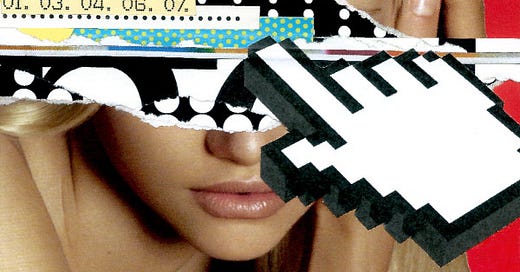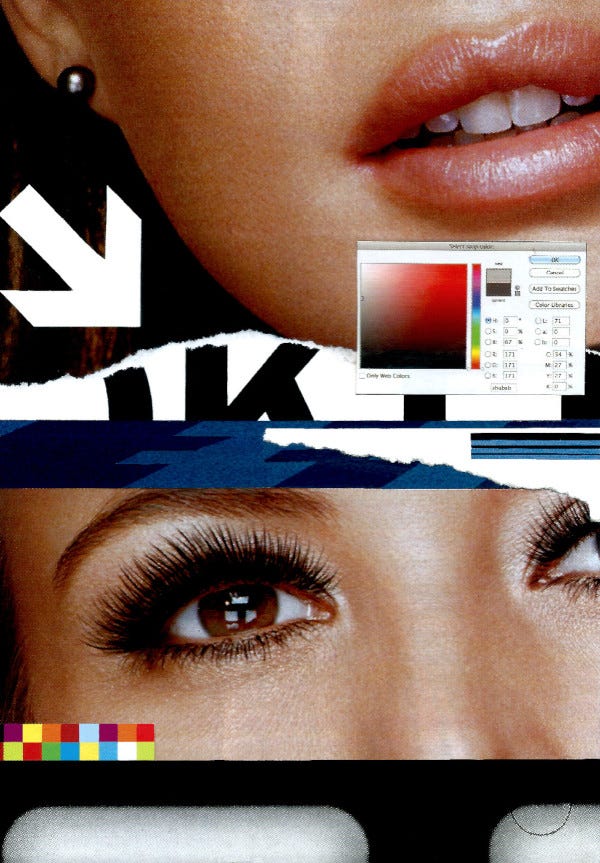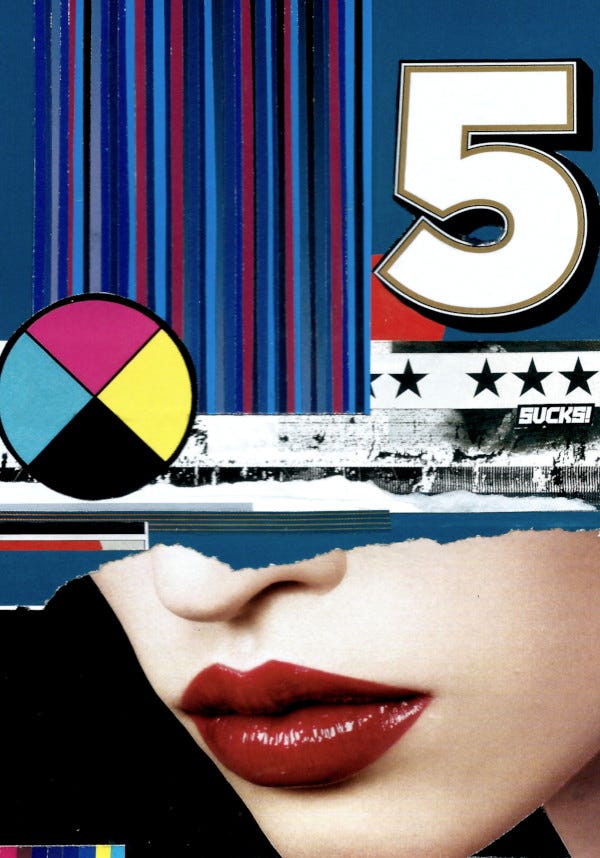I feel like I have been doing more than my fair share of things that make me feel uncomfortable lately. They say that you should do something every day that makes you feel uncomfortable, and if that one thing every day is my fair share, then I probably am just about on quota.
Last Saturday I gave a talk about my collage practice at the Woodford Academy on their open day as part of my ongoing residency there. If there is something that is guaranteed to make me feel uncomfortable it is any form of public speaking.
Swimming in the ocean is guaranteed to do it too (I know, I'm weird), but thankfully I haven't had to do that recently, not least of all because it is the middle of winter and the water would be bloody freezing.
Despite making me feel uncomfortable, I think my talk actually went quite well. It seemed to be well received anyway. I figured that since I was giving a talk at a museum, the way to approach it was to talk about the history of collage art in general, and then try to relate my work back to that ongoing conversation.
I went from Mary Delaney, through all of the usual suspects like Picasso, Braque, Matisse, Schwitters, Hoch, Heartfield, Hamilton, etc., then added in people like Terry Gilliam, Peter Blake, Jamie Reid, Winston Smith, and went right up to the video collage of Soda Jerk.
It did feel a bit weird trying to compare my work back to this pantheon of collage artists, but I guess that is the lineage that it comes from, and in the end, the place it belongs.
Still. Uncomfortable.
The other main sticking point I've had lately has been to do with process. This one will probably take a minute to explain.
As far as my collage work goes, I've always considered myself a hunter/gatherer. That is the sourcing of the materials, the going out and physically finding the images I use in my collages, in bookshops and fete stalls, in opportunity shops and online marketplaces, then taking them home and cutting, organising and filing those materials until I am ready to use them, has always been an integral part of my methodology. As much a part of the process as the actual composing and pasting of a finished piece.
Out of necessity I am now having to change that process.
It probably goes without saying that my work is destructive. I cut and rip and generally interfere with the paper I use to make my collages. Once I'm done with it, it is irrevocably altered.
Now, because I am doing work that is based on, or at the very least is inspired by a collection in a museum I am having to change what it is that I do. I am taking photos and then editing in Photoshop, then getting them printed, all of which is a complete departure from what it is that I normally do.
There is seemingly a new problem at every turn. Lighting when taking the photos, tweaking the colours when digitally editing the images, then paper quality when getting things printed. None of these problems are insurmountable, but they are all a departure from the norm (as far as I am concerned anyway), they are slowing me down and making me second guess myself.
I want to get all this right. I want to be able to use printed images in my collages into the future, but right now it feels like a disruption rather than a development.
Still, I guess I need to keep this in perspective. There are more uncomfortable things than this. For example, I just got in an elevator that looked like it could comfortably accommodate about 15 people, but the information plate on the wall said it could carry up to 33.
Now, that would be uncomfortable.







Thank you for sharing about your process. I'm also considering a residency, as a collage artist too, I can only imagine how uncomfortable it must be not to have all your material with you. Are you in a town, where you can go and rip posters at night? 😏
Is your work at the residency imposed?
Your talk was fantastic - as a Historian I love the historical context, especially the political use of collage. Last night at BHF we had Linda Jaivin speaking on Mao's Bombard the Headquarters campaign which utilised prints, posters and pamphlets to initiate the Great Proletarian Cultural Revolution and which later resulted in the democracy wall where people could post their individual forms of dissent. It's a great book.